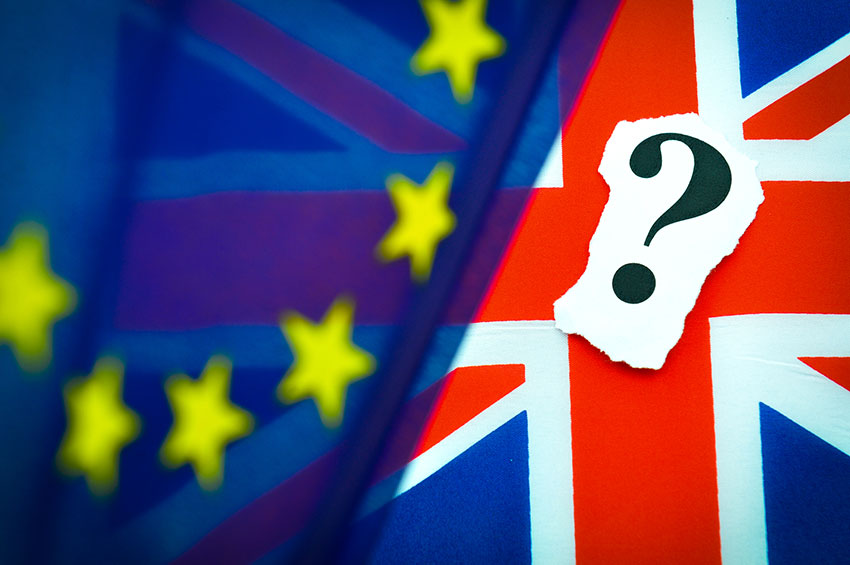BREXIT WOES

The split was predominantly un-welcomed, with 9 out of 10 tech companies opposing Brexit. Concerns over policy, trade, regulation and funding provoked fear and apprehension, while anxieties over the impact on foreign direct investment were rife. So, how is the UK faring almost 6 months on? As a tech powerhouse, the UK has always been a leader and key player in terms of IT opportunity and success, but does the country have the economic clout, innovation and culture to see it through the rocky road ahead? London’s tech businesses are led by some of the UK’s most entrepreneurial influences, hoping to rise to the post-Brexit challenge, and advocate the capital as a global technology hub with unparalleled investment potential.
Prior to June 23rd 2016, London was undoubtedly the tech start-up capital of Europe. However, since the country’s shock exit, the capital’s power and prestige has been called into question. The UK’s decision to leave the EU left investors in Europe’s leading start-up hub shell-shocked, culminating in real fears that international companies may think twice before investing in the country. Now that the initial shock of the decision to leave is beginning to fade, the focus is directed on managing the fallout and identifying opportunities. And there is an abundance of possibilities; with just under half (40%) of Europe’s tech unicorns – young companies valued at a billion dollars – based in Britain.
Nonetheless, from an investment perspective, the UK will continue to be a strong global contender.
Despite the YES vote, Google has not lost confidence in the UK. The company confirmed its plans to build a new £1bn HQ in London, silencing fears that leaving the EU will have adverse effects on business growth in the UK. Settling in Kings Cross, with its close proximity to the St. Pancreas Eurostar route, the energy and excitement is already apparent. Google Chief Executive Officer Sundar Pichai described the plan as a sign of the company’s commitment to the country, and was optimistic about the UK’s future in technology. Google’s expansion follows Facebook’s decision to move to Fitzrovia last year. These, alongside Apple’s resolution to establish in Battersea, where 1, 400 employees will work over 6 floors, things are definitely tech-in up! Facebook will grow its UK presence by 50% in 2017 and Apple has taken enough space to cater for 3,000 employees, offering room to hire more staff as the operation grows.
It remains to be seen whether the UK offers the same investment risks and rewards post-Brexit, and while many may be disappointed by the referendum vote, the Google commitment, amongst others, indicates a healthy level of optimism. Though seemingly resilient at the moment, the UK economy may be in for more bumps in 2017, when the repercussions of Brexit will be fully felt, with a rise in inflation rates likely and while Europe and the world will be preparing for Trump to take the US presidency.
Nonetheless, from an investment perspective, the UK will continue to be a strong global contender. The UK government is doing all it can to support tech sector expansion, with an additional £2bn a year pledged for scientific research and development by 2020 and targets to make Britain’s corporate tax the lowest in the G20. With the big tech giants investing in the UK in spite of scepticism over skill shortages, firms that keep a firm focus on innovation to drive growth should stand strong.
A-team Architects
The new headquarters will be the first wholly owned and designed Google building outside of the United States. The Bjarke Ingels Group alongsideThomas Heatherwick are set to design Google’s new London HQs at Kings Cross. Taking inspiration from its multi-coloured logo, Heatherwick’s design will be modern, bold and bright. The new building comprising of 650,000 sq. ft. will join two others on the 67 acre campus. The London HQ will be the second project undertaken by BIG and Heatherwick Studios, after they designed the US Google HQ in Mountain View, California together. Pivotal, a US company valued at £2.1 bn, that demonstrate to age-old businesses how to innovate the way Silicon Valet start-ups do, have also chosen London as its base. Planning to employ 200 workers by 2017, it is a huge opportunity to help transform UK business. Minister of State for Digital and Culture Matt Hancock hails Pivotal’s dedication as a telling improvement to the UK’s thriving tech sector. Attracting investment like this is crucial in gaining vision and increasing possibilities after Brexit.

